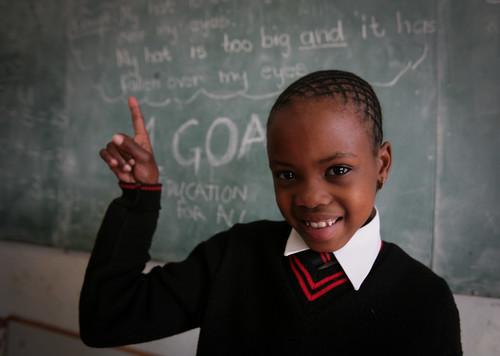13th September 2012
Education for Democracy

The UN International Day of Democracy falls on 15 September, a day on which Governments are encouraged to strengthen national programmes devoted to the promotion and consolidation of democracy. The theme this year is Democracy Education. As the relevant UN web-page notes: “It is only with educated citizens that a sustainable culture of democracy can emerge.”
If we accept Churchill’s 1947 dictum – “Democracy is the worst form of government, except for all those other forms that have been tried from time to time” – then we also accept that democracy is worth an effort. It’s not easy. Personal responsibility, a strong sense of justice, and peaceful dialogue even when you disagree, are all inherent to democracy. And it needs learning.
In his 2012 message for World Day of Peace, “Educating Young People in Justice and Peace”, Pope Benedict flagged up the hard work required: a process “fostered by the encounter of two freedoms, that of adults and that of the young. It calls for responsibility on the part of the learners, who must be open to being led to the knowledge of reality, and on the part of educators, who must be ready to give of themselves”.
At a recent interfaith conference in Istanbul, one of the Holy See’s inter faith experts, Father Miguel Ayuso, argued that the political successes of Islamist parties in the Arab Spring needed to be followed by the nurturing of a “culture of democracy”. Without it, he said, there remained a risk of extremism becoming embedded in the new political arrangements in some states.
He argued that education would be crucial to avoiding this, and praised Al-Azhar university’s positive contribution through publications which affirmed the principles of dialogue, tolerance and respect, as well as the need to preserve basic freedoms as foundations for democratic and constitutional systems of government.
As we begin a new school and university year, it is worth remembering this civic role of education. That is one reason why the British Government has for many years been running its Chevening scholarship programme, allowing students from across the world to further their education and prepare for leadership in their own country through studying in Britain.
Dictators know that education underpins democracy, which is why universities suffer under authoritarian rule. Foreign Secretary William Hague, speaking in September 2010, noted that a key aspect of our international promotion of human rights should be to “use our considerable experience … in education and civil society and the building of institutions .. to help foster positive change..”.
Nothing is more important to sustaining the “culture of democracy”.